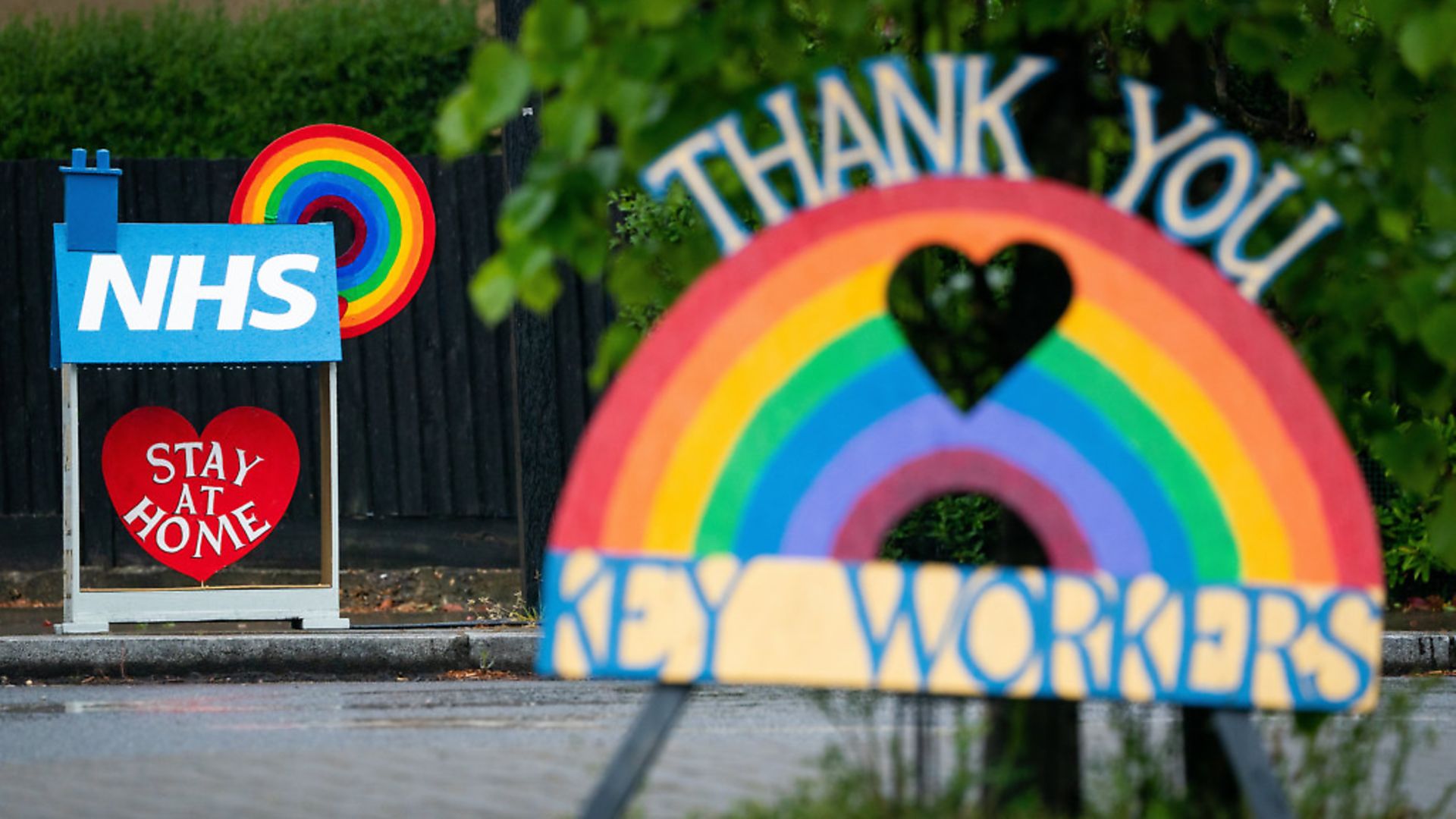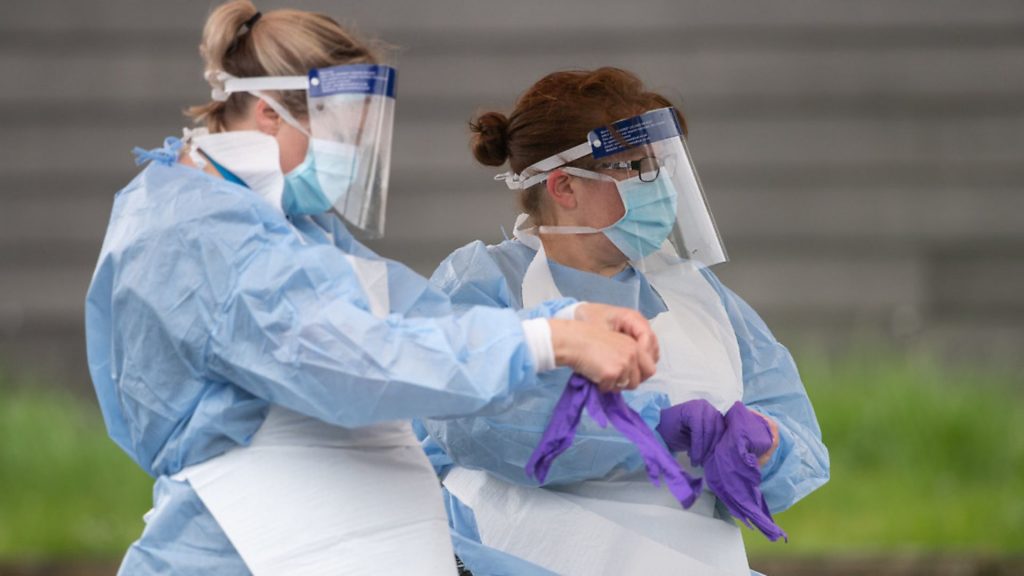
Too critical for some, not critical enough for others, the press has infuriated and irritated many during this crisis, says LIZ GERARD.

Let’s hear it for the key workers keeping the country going. Obviously the doctors, nurses and care staff, but also the delivery drivers, supermarket workers, teachers, police, probation officers and journalists.
Journalists? Yes, journalists are officially essential workers – as in any functioning society. Indeed, the editor-in-chief of the trade paper Press Gazette, has gone so far as to say we are the unsung heroes of the pandemic.
Unsung certainly. For just at the moment we are most needed, we seem also to have reached a low point in the public’s estimation. One YouGov survey for Sky News found that only 17% of respondents trusted newspaper journalists, with broadcasters faring little better at 24%.
It’s the same mentality that says ‘all politicians are liars/in it for themselves’ when patently most are neither. While ‘never trust a journalist’ might hold good if the red-topper on the doorstep is asking you to share your bedroom secrets, it surely doesn’t when a specialist is explaining in simple language how the coronavirus replicates itself.
Or asking difficult questions about how the government, whose primary task is to keep its citizens safe, proposes to do just that when Covid-19 is killing thousands around the world every day; or how it plans to balance lives against livelihoods after weeks of lockdown.
Some have taken the constant war metaphors so much to heart that they think such questions unseemly. Notably the Scottish political blogger Effie Deans, who wrote that journalists had missed the public mood and should stop obsessing about things such as PPE and how other countries are doing. ‘We don’t want blame, we don’t want argument as if this were a general election,’ she wrote.
‘We want a contribution to the national effort to get us out of this crisis. We want optimism and faith in our country.’ Belief, not political point-scoring, was what was needed. Keeping up morale – ‘which matters so much to armies’ – was essential because ‘morale can cause miracles, not merely in battle, but in illness’.
That post has been read by more than half a million people – the sort of readership most mainstream journalists can only dream of. And a lot of those readers were saying ‘hear, hear’.
Journalists are well aware of the need to keep people’s spirits up, to entertain readers as well as inform them.
That’s why newspapers are puffing the extra puzzles they are publishing, running features on the whacky ways friends are socialising virtually. But it’s not their job to follow the ‘public mood’. It is their job to tell people what they need to know.
Apart from anything else, the ‘public mood’ is unquantifiable – beyond the obvious that we could all do with some cheerful news and that we can all rejoice in Captain Tom.
But, to put it harshly, he is just a charming diversion in this horror. On the central issue there is no ‘public mood’. Some think the government has messed up; some think it was slow off the mark, but is getting better; some think it’s doing ok; some think it’s done ok so far, but needs to change tack.
This range of opinion is well reflected by journalists as diverse as Toby Young and Allison Pearson, Paul Mason and Marina Hyde, and dozens more politically in between. Many (particularly Remainers) are aghast to find that Piers Morgan now speaks for them.
That YouGov survey reported that 64% of people distrusted broadcast journalists, yet another by Ofcom found that more than 80% of people get their news from broadcasters, with between 75% and 83% trusting the various networks.
A similar paradox applies to the press. YouGov says that 72% of its respondents distrust newspaper journalists and the UK press has for years (by some margin) been the least trusted in Europe.
Yet, according to Ofcom, nearly half of us still turn to them for news. And while circulations are slumping, website traffic to newspaper websites is soaring.
There is a real chance that this virus could kill off daily papers as we know them. Revenue is vanishing along with advertisers with nowhere to sell and shoppers with nowhere to buy.
Hence the much longer than usual appeal for contributions at the end of the Guardian’s online articles. And the concerted Twitter appeals from Sun journalists begging people to #buyapaper – like this one from the Sunday edition’s political editor David Wooding: ‘The frothy coffee shops might be closed but our newspapers are still available – providing trusted information, not myths, for millions of people during the crisis. For less than that cup of cappuccino. Do your bit.’
Over a 12-hour period four of the paper’s top journalists posted similar tweets, three mentioning the price of a coffee and all using the phrase ‘trusted information’.
It’s not hard to imagine the response they got when you consider not only the general lack of trust in the press, but also the fact that the Sun’s most ignominious moment came with a front page headlined ‘The truth’.
Those tweets were sent as Boris Johnson was admitted to hospital. By any measure, a prime minister in intensive care is a big story; when he has been laid low by the very virus he is ‘battling’ on behalf of the country, it becomes enormous. For the next week – apart from clapping Thursday – Johnson’s condition dominated the Sun’s front pages, including one where it told readers to pray for him.
This at a time when health workers were using binbags because they had no protective gowns, procurement and testing rows were raging, the cabinet was at odds over lockdown – and the death toll was climbing towards a thousand a day.
Over the course of that week, the total number of Covid deaths in hospitals doubled to 10,000, but this was subordinate to the prime minister watching Withnail and I, worthy of note only at the foot of the page, sometimes in a starburst-style ‘virus’. Was this the kind of positivity that Effie Deans was looking for? More in tune with the ‘public mood’?
That ‘virus’ death toll, reminiscent of midsummer ‘phew, what a scorcher!’ temperature sunbursts, had been a feature of the paper’s Covid coverage almost from the word go, reaching peak bad taste last week when the main headline was ‘Pubs shut till Xmas’, overlaid on a picture pint of beer. The ‘virus’ sat beside the word ’till’, proclaiming ‘596 dead. See page 4’. It hasn’t appeared since. Maybe the appalled reaction made the editor have a rethink. Maybe she adjusted to the public mood.
There have been missteps along the way. There has been some rank journalism, both in the partisan pro-Boris propaganda and in the stubborn refusal by his opponents to accept that he has done anything right at any point. The Telegraph’s ‘Ten times more people die of flu than Covid-19’ was a real shocker, comparing one week’s covid deaths early in the epidemic with those for all respiratory deaths, including flu, pneumonia, asthma, bronchitis etc, etc, not to mention undiagnosed coronavirus.
The daily press conferences are exasperating and have come under attack from viewers and journalists alike. The same people asking long-winded questions, the lack of proper follow-ups, the absence of specialists from outside of the lobby caucus.
Press conferences do tend to be messy affairs; it’s just that the public don’t usually see them. When they work well, journalists pull together like a tag team, picking up lines from the previous questioner, leading to greater enlightenment for all.
More often, as we have seen in Downing Street, everyone has the one point they want to raise and they’re going to raise it, come what may. Then everyone loses, apart from the minister let off the hook.
But there has also been some great journalism – and great dedication by journalists. Do you remember the last day you didn’t see Hugh Pym or Fergus Walsh onscreen? Would the ‘herd immunity’ strategy have been abandoned if Robert Peston hadn’t reported it? Would PPE and testing failings have been addressed without journalistic pressure? Who highlighted the care home and domestic abuse concerns?
Look at the ‘explainers’ on every platform: websites, newspapers, periodicals, specialist press, radio, television, podcasts – and, yes, social media.
Look at the community initiatives from local newspaper publishers. Look at the human stories about families everywhere in mourning. Look at the accounts by Dominic Minghella and Roger Boyes of their experiences as Covid patients.
These are the people Dominic Ponsford, editor-in-chief of Press Gazette, means when he talks about unsung heroes. He wants to showcase ‘excellence’ in journalism and has invited nominations from anyone interested. Naturally, the national press were there at the first whiff of a plaudit, but to be frank, this hasn’t been their finest hour. Let’s hope lower-profile journalists from a more diverse background get the recognition they deserve.
Maybe Effie Deans could put herself forward for the next round. Because what she’s doing, agree with her or not, is journalism. Which makes her a journalist. And, in a democracy, journalists are key workers.











